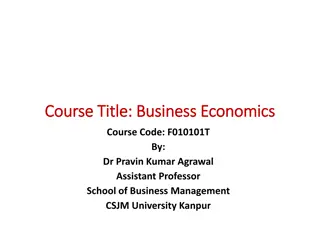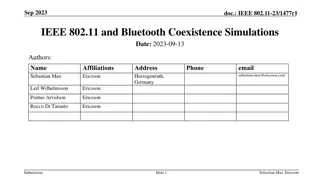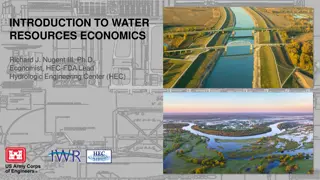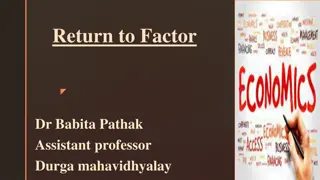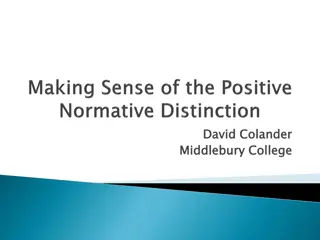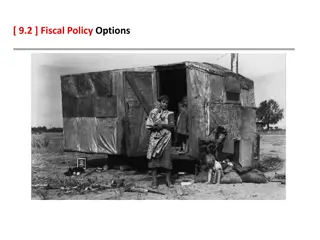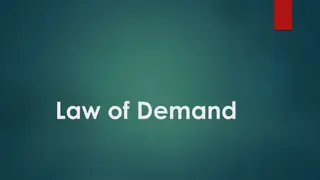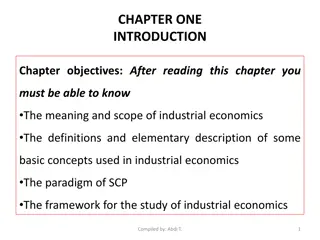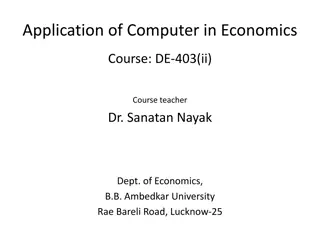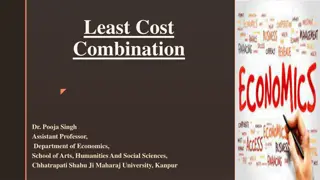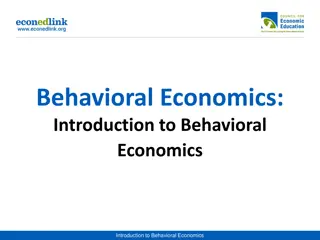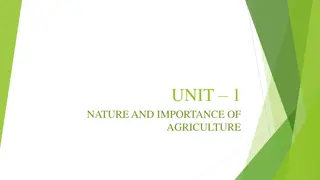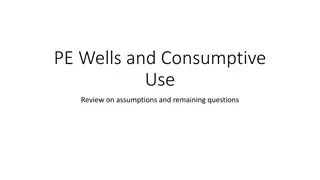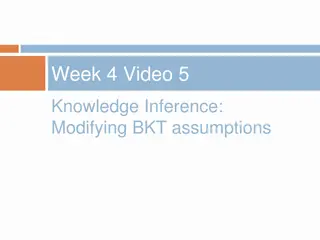Understanding Economics: Definitions and Basic Assumptions
Economics is a social science that examines how individuals, businesses, and governments allocate resources to satisfy unlimited wants in the face of scarcity. It involves decision-making processes and the study of human behavior in relation to the allocation of scarce resources. Basic assumptions like economic rationality and ceteris paribus help economists analyze and understand economic phenomena.
Download Presentation

Please find below an Image/Link to download the presentation.
The content on the website is provided AS IS for your information and personal use only. It may not be sold, licensed, or shared on other websites without obtaining consent from the author. Download presentation by click this link. If you encounter any issues during the download, it is possible that the publisher has removed the file from their server.
E N D
Presentation Transcript
Definition of Economics and Basic Assumptions ECONOMIC ANALYSIS (DBM-121) A K JHA
Introduction Economic Analysis Relevance of the course Why do you need to study it? Unlimited needs and want Limited resources Multiplicity of needs and wants Alternative uses of resources Decision making/ Choices
What is Economics? Earlier, the term Economics' was used to for Political Economy . The term Economy is derived from the Greek word oikonomia means management of household. Now the question is what is economics? There are several definitions.
Definitions of Economics 1. Adam Smith (1776) defined economics as an inquiry into the nature and causes of the wealth of nations." 2. J.B. Say (1803) defined it as the science of production, distribution, and consumption of wealth. 3. Thomas Carlyle (1849) stated it as 'the dismal science . 4. Alfred Marshall (1890), in his textbook Principles of Economics extended the analysis beyond wealth and from the societal to the microeconomic level. Marshall explained Economics is a study of man in the ordinary business of life. It enquires how he gets his income and how he uses it. As per this definition , it is on the one side, the study of wealth and on the other and more important side, a part of the study of mankind.
Definitions of Economics contd.. According to Lionel Robbins (1932), Economics is a science which studies human behaviour as a relationship between ends and scarce means which have alternative uses. Broadly, on the basis of different concepts and definitions it can be concluded that economics includes the study of: the economy the coordination process the effects of scarcity the science of choice human behavior Human beings as to how they coordinate wants and desires, given the decision-making mechanisms, social customs, and political realities of society.
Basic Assumptions of Economics 1. Economic rationality Every decision maker in an economic system behaves in a rational manner and attempts to maximize his gain/welfare. Economic rationality presupposes that every person knows his interest and selects that course of action which gives him greatest amount of satisfaction. The assumption of economic rationality does not carry any moral or ethical implications.
Basic Assumptions of Economics 2. Ceteris paribus i.e. Other things being equal . This is the most widely used assumption of economics. This assumption shows the limitations in the way of any economic generalization. The law of demand, for example, states that a large quantity of commodity or service will be demanded at a lower price, other things remain the same.
Basic Assumptions of Economics 3. Concept of equilibrium equilibrium denotes the state of rest. it shows a position of no change or position of maximum gain. The economists assumes that economy has a natural tendency to reach equilibrium.
Basic Assumptions of Economics 4. Static economy Economics studies the problem of allocation of resources between goods and services assumption that technology and resources are given in an economy. It implies that economy is producing maximum amount of national income with the given technology and resources. In other words economics studies a static economy with a given system of wants, resources and technology, although in real world situation nothing is static. on the


